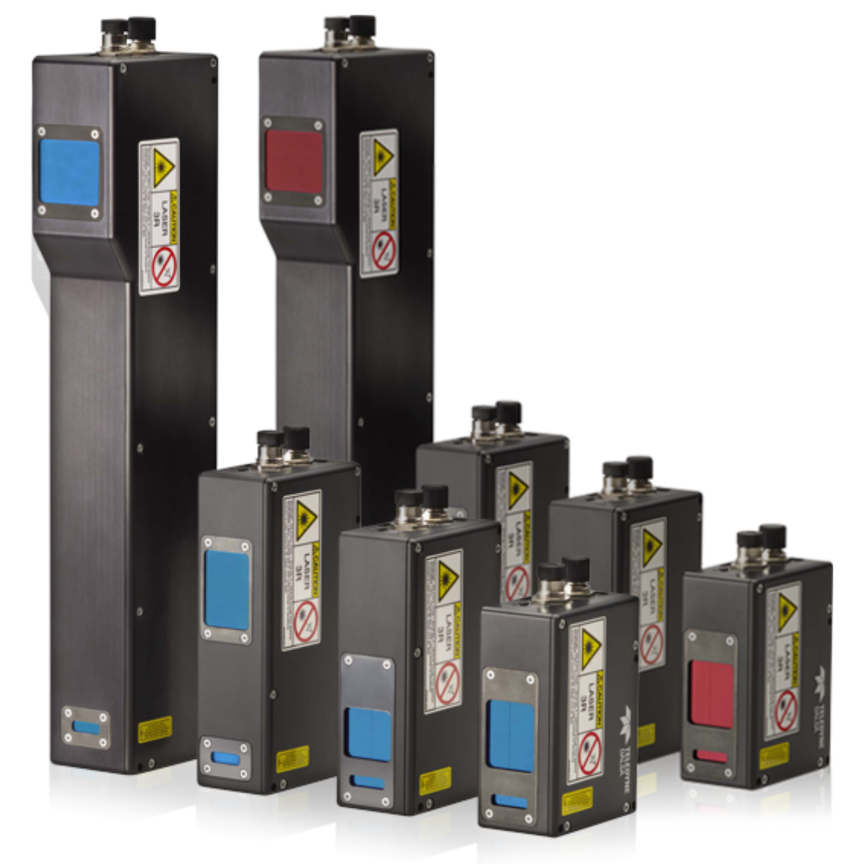Acrovision, a UK-based systems integrator of factory and warehouse automation, vision inspection systems and direct part marking and identification technologies, has chosen the thermoIMAGER TIM QVGA-HD-T100 thermal imaging camera from Micro-Epsilon as part of its infrared thermal detection system, the AFS-100. The system provides end users with a reliable, versatile, high accuracy fever screening system to help prevent the spread of the coronavirus (COVID-19). The thermal imaging camera was selected due to its high accuracy and ease of integration, set up and configuration.
The AFS-100 is an infrared thermal detection system which is used to detect a person’s elevated body temperature. The system meets the ISO 80601-2-59:2017 standards for “Basic Safety and Essential Performance of Screening for Human Febrile Temperature”. The built-in thermoIMAGER TIM QVGA-HD-T100 camera allows for individuals to be scanned at points of entry to buildings such as factories, airports, offices, warehouses and hospitals, or generally positioned onsite for screening purposes, providing a safe non-contact solution for temperature checks.
Paul Cunningham, Managing Director of Acrovision comments: “In current times, more than ever, we need to be vigilant of fevers or viruses and in turn the wellbeing of employees and customers in public areas. We also need to increase everyone’s confidence in knowing they are entering a safe environment. The AFS-100 fever screening system is designed to be extremely easy to install and use, yet remain ultra-accurate in its measurement results. We are also pleased to say that 10 per cent of sales of the AFS-100 will be donated to the NHS.”
As well as the thermoIMAGER TIM QVGA-HD-T100 camera, the AFS-100 consists of a Feedback Monitor and the all-important “Reference Box” that ensures the accuracy of ±0.5°C. As an option, the AFS-100 offers a Data Collection bolt-on, which allows the use of Personnel ID cards to both trigger the camera and to log individuals’ temperature measurements for further analysis or tailoring of results.
Cunningham continues: “As a business, we were already familiar with Micro-Epsilon and its products, including its 2D/3D laser measurement sensors. During lockdown, I attended a Micro-Epsilon webinar about its thermal imaging camera and so was confident that it would meet our strict requirements in terms of accuracy, quality and reliability. We also thought Micro-Epsilon would be a ‘good fit’ for Acrovision in terms of the high-end, high quality, German-made products they supply, but also because they sell products based on technology and technical advantages.”
A key element to the AFS-100’s method of individual screening is the accurate measurement taken from the Medial Canthus (tear duct in the inner eye area) which provides the strongest indication of an elevated body temperature. The system analyses every pixel (approximately 1.3mm) of this area and highlights the hottest region. This method removes the inaccuracies/issues of an incorrect measurement due to environmental and physiological factors that many other systems are susceptible to.
The thermoIMAGER TIM QVGA-HD-T100 infrared camera from Micro-Epsilon is supplied with a certificate of calibration that validates temperature measurements made against a traceable 35°C temperature reference source (black body). The camera is accurate to ± 0.5°C when used with the TM-BR20AR-TIM black body source, which means it can provide reliable skin temperature measurements for fever detection systems. It is ideal for integration into automated monitoring systems such as the AFS-100.
Absolute temperature measurement accuracy
Most infrared cameras with 8-14µm spectral response are specified with an accuracy of ± 2°C or 2% of the reading, whichever is greater based on deployments in industrial environments in a wide variety of ambient conditions from 0°C to +50°C. This means that many thermal imagers are unable to achieve the accuracy required to detect a fever and so give false positive readings.
Many infrared cameras are being promoted today that claim to offer accuracies of ± 0.5°C or better. However, these accuracies cannot be achieved without the use of a black body reference source. This source needs to be stable, have high emissivity and should be positioned in close proximity to the person to be scanned. It is vital to select a black body source with a very high stability, as not all black body sources are stable enough to provide a ± 0.5°C system accuracy.
The TM-BR20AR-TIM ambient black body reference source from Micro-Epsilon can be combined with the thermoIMAGER TIM QVGA-HD-T100 camera. The black body is equipped with a 16-bit digital temperature sensor with ± 0.1°C accuracy. By integrating this highly accurate reference signal to the TIM Connect software (freely provided with the camera), Micro-Epsilon can reduce camera uncertainties resulting from device adjustment, ambient temperature drift and short term stability down to a system accuracy of ± 0.5°C with a confidence interval of 95%.
“As well as the high resolution of the Micro-Epsilon camera, the other key benefits for us are its back-end software program that is easy to use and which simplified the set up and configuration of the camera, as well as simplifying the integration of the camera to our own hardware and software systems,” adds Cunningham.
“Right from the start and all the way through product development, the Micro-Epsilon team has been extremely helpful, including demonstrations of the camera, answering our questions and providing technical support, training us on how to use the camera and its software. We look forward to continuing this relationship in the future,” Cunningham concludes.

